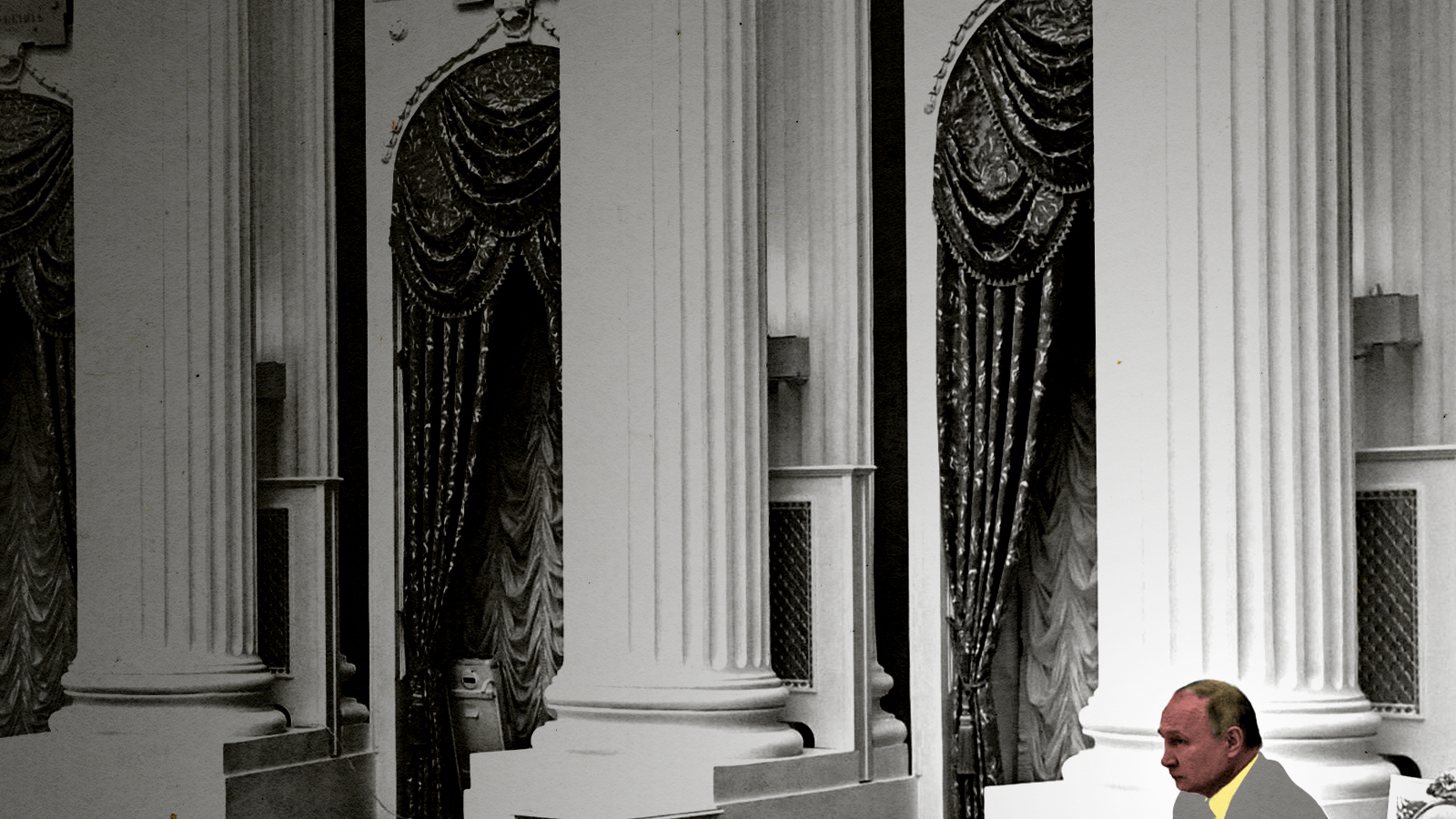It's still Putin's move
There is very little outside actors can do at this point to shape Moscow's decision-making


A free daily email with the biggest news stories of the day – and the best features from TheWeek.com
You are now subscribed
Your newsletter sign-up was successful
It has begun. The invasion that the Biden administration has been warning daily is imminent has commenced, with Russian troops entering the Donbas region of Ukraine to support its separatists — whose claims to independence President Vladimir Putin recognized minutes before.
So far, nothing that has happened is particularly unprecedented — which is why the Western reaction has also been appropriately measured so far. The world is dotted with breakaway regions that are recognized by some governments but not by others. The Turkish Republic of Northern Cyprus, for example, carved out by a Turkish invasion aimed at preventing the island from unifying with Greece, has never been recognized by anyone but Turkey in the nearly 50 years that it has existed. The Republic of China on Taiwan is officially recognized only by a handful of small countries — even the United States, which is increasingly committed to its defense, does not recognize it as an independent country.
Russia in particular has supported multiple such breakaway regions in former Soviet states. Russia even sent troops into Georgia in 2008 to prevent the breakaway region of South Ossetia from being rejoined to Georgia proper. If the Kremlin planned on stopping with recognition of the Donbas rebels and forcibly preventing Ukraine from doing anything about their independence, then it would be terrible for Ukraine — Georgia and Moldova have been economically crippled by their inability to control their territory — but it would probably not provoke a global crisis.
The Week
Escape your echo chamber. Get the facts behind the news, plus analysis from multiple perspectives.

Sign up for The Week's Free Newsletters
From our morning news briefing to a weekly Good News Newsletter, get the best of The Week delivered directly to your inbox.
From our morning news briefing to a weekly Good News Newsletter, get the best of The Week delivered directly to your inbox.
It's unlikely that the conflict will end here, however. Russia didn't need to move over 150,000 troops to Ukraine's borders in order to reinforce the Donbas. The rebels lay claim to the entirety of their provinces of Luhansk and Donetsk; Russia could help them seize the territory they don't already hold, engaging the Ukrainian army directly and precipitating a wider war. More likely, Moscow could use real or invented conflict between rebels and the Ukrainian army as a pretext for a full-scale invasion of the entire country aimed at replacing the government in Kyiv.
What can the Ukrainian government do to prevent that from happening? The only way they could deny Russia the pretext for a wider invasion would be by surrendering, either abandoning their claims to their sovereign territory in Luhansk and Donetsk or acceding to the status of a Russian satellite, comparable to Belarus. Kyiv isn't going to do either.
If Russia does decide to invade, though, the initial phase is likely to overwhelm Ukrainian defenses quickly. Moscow might well come to regret an invasion if Ukrainian resistance doesn't evaporate quickly after, but if the prospect of such resistance hasn't deterred Russia from going as far as they have already, it's unlikely to deter them from taking the next step either.
The next move, in other words, belongs to Putin, and there is very little outside actors can practically do at this point to shape his decision-making.
A free daily email with the biggest news stories of the day – and the best features from TheWeek.com
It's tempting to conclude, therefore, that negotiations have been pointless from the beginning. There may indeed be "no bargaining" with Putin in the sense that there is no deal he could accept that would also have been acceptable to Ukraine's government and its people, and no deal with NATO that he was going to trust. But that doesn't mean that negotiations were pointless. Quite the contrary.
Why, if Putin wanted war, did he go through the charade of making demands and appearing to negotiate? Because while he is an authoritarian, he still needs popular support, and he needs to construct that popular support from observable facts, however distorted. Even so, support for his current moves appears far more tepid than his seizure of Crimea in 2014, which enjoyed enthusiastic popular backing in Russia.
The same is true of the West. Fine distinctions such as President Biden's between a "limited incursion" — which is what has happened so far — and a full-scale invasion matter greatly in achieving popular and international support for a more confrontational policy, even if that confrontation is limited to something far short of war (as I sincerely hope it is). They also matter greatly for communicating with Putin himself. The last thing we want to do is assist him in building his case before his own people, and thereby make it easier for him to opt for maximum violence.
So we'll wait, and we'll be frustrated at our inability to shape events decisively, either by confrontation or negotiation. That's a feeling we'd better get used to though. It's what multi-polarity is going to feel like all the time.
Noah Millman is a screenwriter and filmmaker, a political columnist and a critic. From 2012 through 2017 he was a senior editor and featured blogger at The American Conservative. His work has also appeared in The New York Times Book Review, Politico, USA Today, The New Republic, The Weekly Standard, Foreign Policy, Modern Age, First Things, and the Jewish Review of Books, among other publications. Noah lives in Brooklyn with his wife and son.
